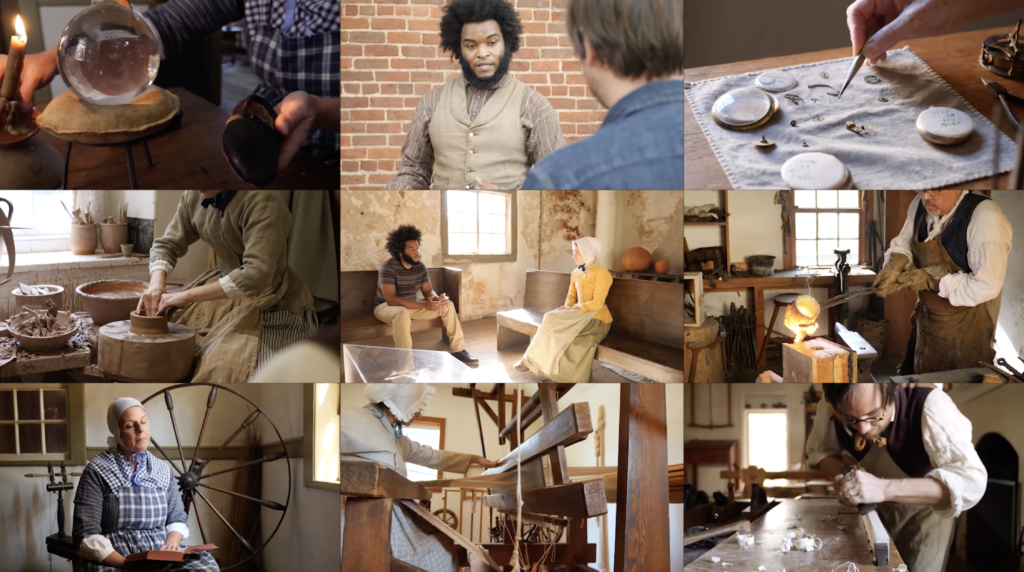Educational Videos and Teacher Resources

Old Salem’s education Video Series brings students and our master craftsmen and educators together. Hosted by our educators, the episodes will allow students to get up close and personal with our craft workshops, seed-saving lab, archeology lab, gardens, Museum of Early Southern Decorative Arts, and behind-the-scenes collections. Utilizing an innovative educational classroom model, school children will be able to watch and learn about not only Old Salem’s history, but also other curriculum-based concepts.
Thank you to our partners, Truist and DataMax, for sponsoring us!



Elementary
Kindergarten
Middle
Grade 6
Grade 7

Elementary
Kindergarten
Grade 2
Grade 3
Grade 4
Middle
Grade 6
Grade 7
High
Biology
Physical Science

Elementary
Middle

